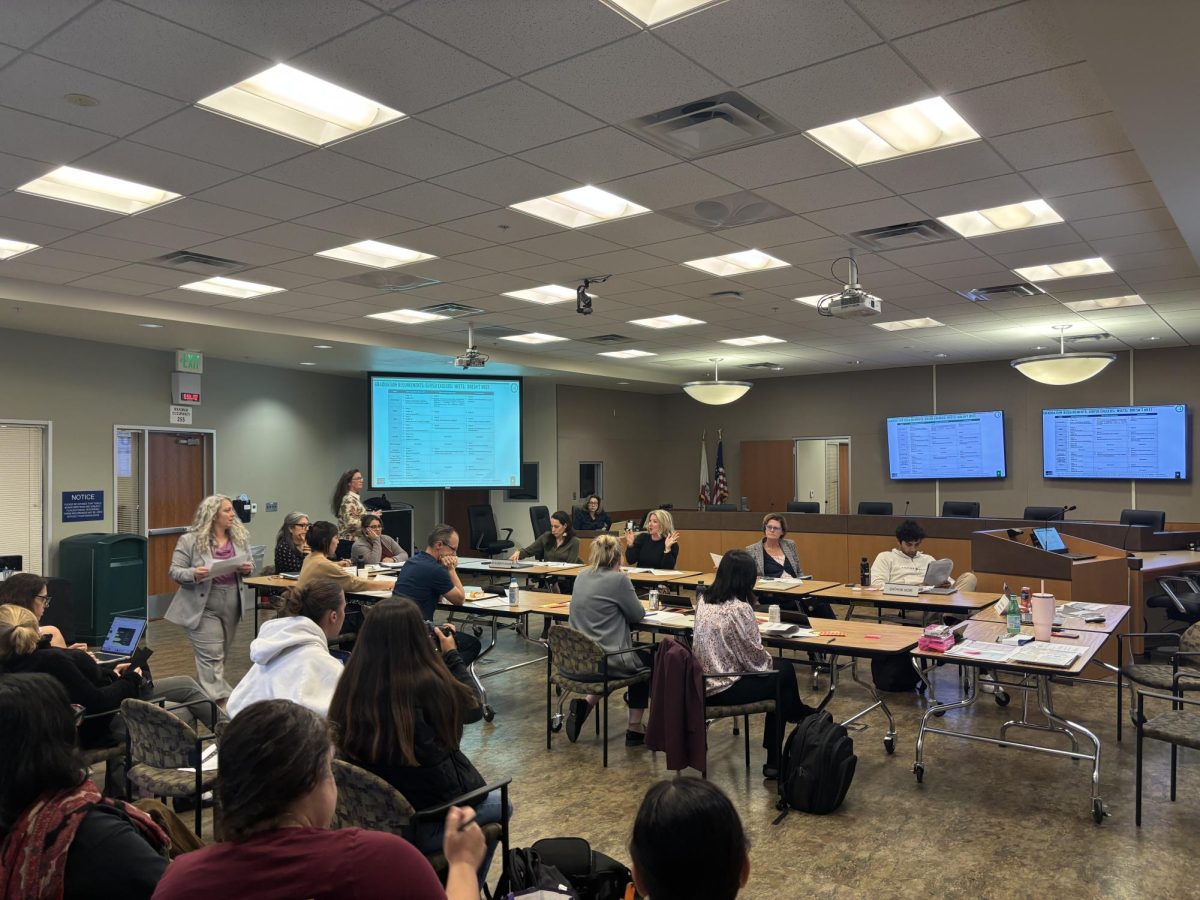Woodside High School students are in the midst of preparing for advanced placement (AP) tests which will take place throughout the month of May, raising discussions about the purpose, as well as the impact, of these classes.
AP classes are courses taught in ordinance to a curriculum created by the college board in order to provide college level experiences to high school students. Tests are graded by the College Board, and if students score high enough, they are exempt from taking that course in college. The reasons for which students elect to take these classes vary, but typically relate to wanting a challenge.
“I wanted the challenge; I wanted the rigor of an AP course… I chose AP Calculus AB [because] it was the next course in my math pathway, and I hadn’t heard the best things about precalculus,” Emma Klemperer, a sophomore at Woodside High School who is currently enrolled in AP Modern European History and AP Calculus AB, stated.
While advanced-placement tests provide opportunities for high school students to get a grade boost on their grade-point averages (GPAs), take higher level classes, prepare for education after high school, and possible cut down on future college costs, they also serve as a source for high school student stress.
“It’s a lot of homework,” commented Andy Engel, a Woodside High School student taking AP Calculus. “[AP classes] are a lot harder [and] a lot more work than other class options.”

Students at Woodside take a variety of AP classes.
AP classes provide rigorous in-class as well as homework expectations, yet students feel pressured to take them due to the highly competitive college admissions process. However, perhaps contradictory to these high expectations, students feel that these classes are not taught in the most productive manner for absorbing high quantities of information.
Samantha Personette, a Woodside High School Junior taking AP English Language and AP Environmental Science, explains the pressure of these advanced classes.
“The amount of rigor and coursework [and] how teachers just expect you to teach yourself… puts a lot of responsibility on the students,” Personette explained.
Yet in recent years, students have been taking more and more AP classes. Despite the high stress and limited free time, AP courses offer students to pursue their interesting in a more in-depth classroom setting. Sstudents enrolled in these AP classes report satisfaction with the ability to further their understanding in areas of interest, but also acknowledge that stress is an inherent aspect of these courses, and that when choosing classes, each student must decide for him or herself what is the best choice for their future.
“Depending on what you want to do, I think you create how important AP classes are,” Personette concluded. “So, if you are somebody who decided that your priorities are to go to college, and go get this PhD, then AP could be this really crucial step. But if your someone who’s just trying to take them because that’s what everybody else is doing, and it’s not something that you’re really interested in, then it’s not worth the rigor, it’s not worth the stress.”









